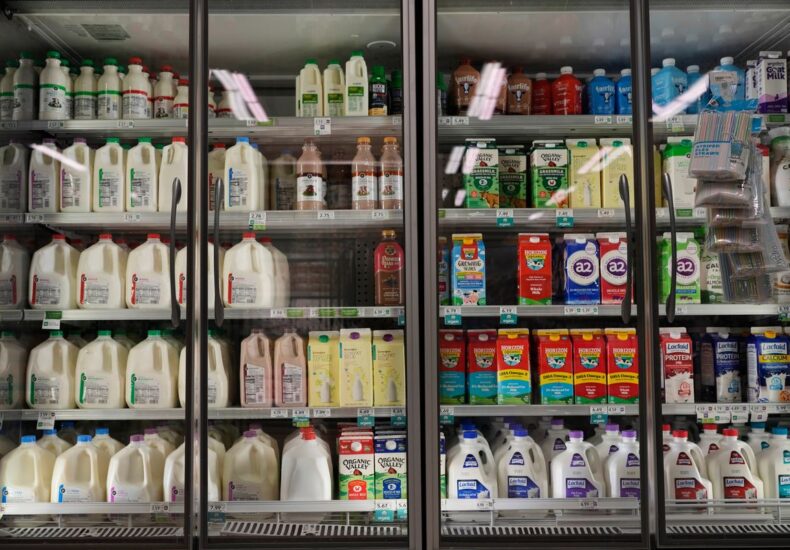
Trump administration faces a deadline to tell judges whether it will use contingency funds for SNAP
President Donald Trump’s administration faces critical deadlines on Monday to inform two federal judges whether it will comply with court orders to continue funding the Supplemental Nutrition Assistance Program (SNAP), the nation’s largest food aid initiative, using contingency funds during the ongoing government shutdown.
The U.S. Department of Agriculture (USDA) initially planned to freeze SNAP payments starting November 1, citing an inability to sustain funding due to the shutdown. SNAP serves about one in eight Americans and represents a major component of the nation’s social safety net, costing approximately $8 billion monthly nationwide. This looming funding uncertainty leaves millions of beneficiaries unsure of how they will secure food.
Regardless of the court outcomes, November benefits are expected to be delayed. Many recipients have their benefits loaded onto SNAP debit cards early in the month, and the card reloading process can take a week or more in numerous states.
Efforts to challenge the payment freeze have come from Democratic state attorneys general and governors representing 25 states, along with the District of Columbia. They argue that the administration is legally required to maintain SNAP operations within their jurisdictions. Additionally, cities and nonprofit organizations have filed lawsuits opposing the funding pause.
On Friday, federal judges in Rhode Island and Massachusetts issued rulings ordering the administration to continue SNAP payments. Both courts allowed flexibility regarding whether funding for November would be partial or full.
The USDA maintains a $5 billion contingency fund dedicated to SNAP, but the Trump administration reversed an earlier decision to tap this reserve to keep the program running. Democratic officials have suggested the administration could also utilize a separate fund totaling about $23 billion.
U.S. District Judge John J. McConnell in Providence, Rhode Island, ruled that SNAP must be funded with at least the contingency funds and requested an update on progress by Monday. He emphasized that all previously granted work requirement waivers must remain in effect. Notably, during the shutdown, the USDA ended existing waivers exempting work requirements for older adults, veterans, and others.
In Boston, U.S. District Judge Indira Talwani deemed the suspension unlawful and ordered the USDA to continue funding SNAP. She instructed the federal government to notify the court by Monday whether it will use emergency reserve funds to provide reduced SNAP benefits for November or fully finance the program using both contingency and additional available funds.
Advocates and beneficiaries warn that halting food aid would force many people to choose between purchasing groceries and paying other essential bills. In response, the majority of states have announced increased or expedited funding for food banks and innovative methods to load at least some benefits onto SNAP debit cards.
To qualify for SNAP in 2025, a family of four must have a net income, after certain expenses, below the federal poverty line—about $32,000 per year. Last year, SNAP assisted nearly 42 million individuals, approximately two-thirds of whom were families with children.
By The Associated Press.
https://mymotherlode.com/news/national/10136879/trump-administration-faces-a-deadline-to-tell-judges-whether-it-will-use-contingency-funds-for-snap.html
You may also like
更多推荐
You may be interested
Globe bets on prepaid fiber, sets expansion
No content was provided to convert. Please provide the text...
Bragging rights up as Samal makes 5150 debut
A stellar Open division field will be shooting for the...
DigiPlus launches P1-M surety bond program
MANILA, Philippines — DigiPlus Interactive Corp. has partnered with Philippine...
 The New York Times
The New York Times
- Air Canada Cancels Flights to Cuba as Cuba Runs Out of Jet Fuel 2026 年 2 月 10 日 Frances Robles
- The Epstein Files Are Coming for Keir Starmer 2026 年 2 月 10 日 Moya Lothian-McLean
- Bangladesh Exposed the Deeper Problem Facing Democracy 2026 年 2 月 10 日 Zahid Hussain and Tom Felix Joehnk
- Nicaragua Blocks a Route from Cuba to the U.S. 2026 年 2 月 10 日 James Wagner
- How Italy’s Police and Army Compete to Enlist Italian Olympians 2026 年 2 月 10 日 Jason Horowitz
- New Email Shows Bard President Leon Botstein Thanked Epstein for Caribbean Trip 2026 年 2 月 10 日 Vimal Patel
- Appeals Court Lets Trump Revoke Deportation Protections for 60,000 More Migrants 2026 年 2 月 10 日 Chris Cameron
- Judge Strikes Down California’s Ban on Masks for Federal Agents 2026 年 2 月 10 日 Laurel Rosenhall
- A Campaign to Revoke the Endangerment Finding Appears Near ‘Total Victory’ 2026 年 2 月 10 日 Lisa Friedman and Maxine Joselow
- Trump Threatens to Block Opening of Gordie Howe International Bridge to Canada 2026 年 2 月 10 日 Chris Cameron and Vjosa Isai



Leave a Reply